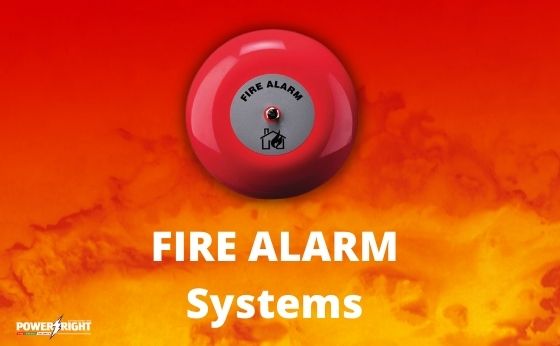
One of the common threats to both homes and businesses is fires. Lack of fire safety measures may lead to substantial unfavourable consequences, such as financial and material losses, losses of emotional wellbeing and even loss of life.
In January this year Department of Housing, Local Government and Heritage of Ireland published Fire Fatality statistics, saying there were 20 deaths registered in 18 urban and rural locations in 2021. Less than half of these premises had a smoke alarm installed, and only 3 of them worked properly.
The fire detection system, consisting of fire alarms and smoke detectors, is an essential part of fire safety in commercial and residential properties. Having it installed and working in good order allows warning the occupants as soon as a fire breaks out, so they can take necessary actions in time.
However, there are a few differences between residential and commercial systems that you should be aware of:
Fire detection systems designed for houses are usually small and not complex. These systems include heat and smoke detectors installed strategically in a central area or locations prone to fires.
The systems in commercial properties are much bigger and more complex than in residential settings. They require extensive planning and fire risk assessment executed before installation.
The type of fire detection system depends on the type of business, the number of employees, the size of the premises etc. Fire and smoke detectors need to provide complete coverage of the main area. Besides, they must spread out throughout the property and interlink via the central control panel to ensure timely warning of all occupants of the danger.
There are two kinds of detectors used in residential properties: photoelectric and ionisation. Photoelectric ones are great at detecting smouldering fires and smoke coming out of burning furniture and fabric. Ionization devices can efficiently detect flaming fires.
Both types provide crucial advantages for residential fire safety. It is impossible to choose one as nobody can predict what kind of fire might break out on your property. To assure the best protection, use both types of detectors.
You can use a conventional or addressable fire alarm system for commercial properties. The conventional system implies dividing the property into zones. If the detector registers a fire, the control panel lets you know only the zone of the event. Thus, conventional systems are better for small areas.
The addressable system is the most modern fire protection tool. This system provides an “address” for each device and can specify the location of the threat. Such precise systems are more suitable for larger businesses, businesses at a higher risk of fires or dealing with chemicals.
The testing process for residential alarms is straightforward. No professional assistance is needed. The best thing to do is to test the devices once a week and keep them clean.
There are stricter maintenance protocols for commercial fire detection systems, requiring professional services. Professional servicing must take place 2-3 times a year to check if your system is compliant with regulations and if it offers maximum fire protection.
Monitored fire alarm systems in residential properties provide an extra layer of security. A monitoring centre will alert the fire department as soon as there is a signal. However, commercial properties use monitoring services more often. It is a great way to make sure that your business premises are safe from fire, especially when it’s unattended.
To guarantee the desired level of fire protection, you need to define the type of your premises and their size. A fire detection system that is suitable for a residential setting may not work in a residential one and vice versa. Large businesses should choose monitored alarm systems and use professional assistance in testing and maintenance.